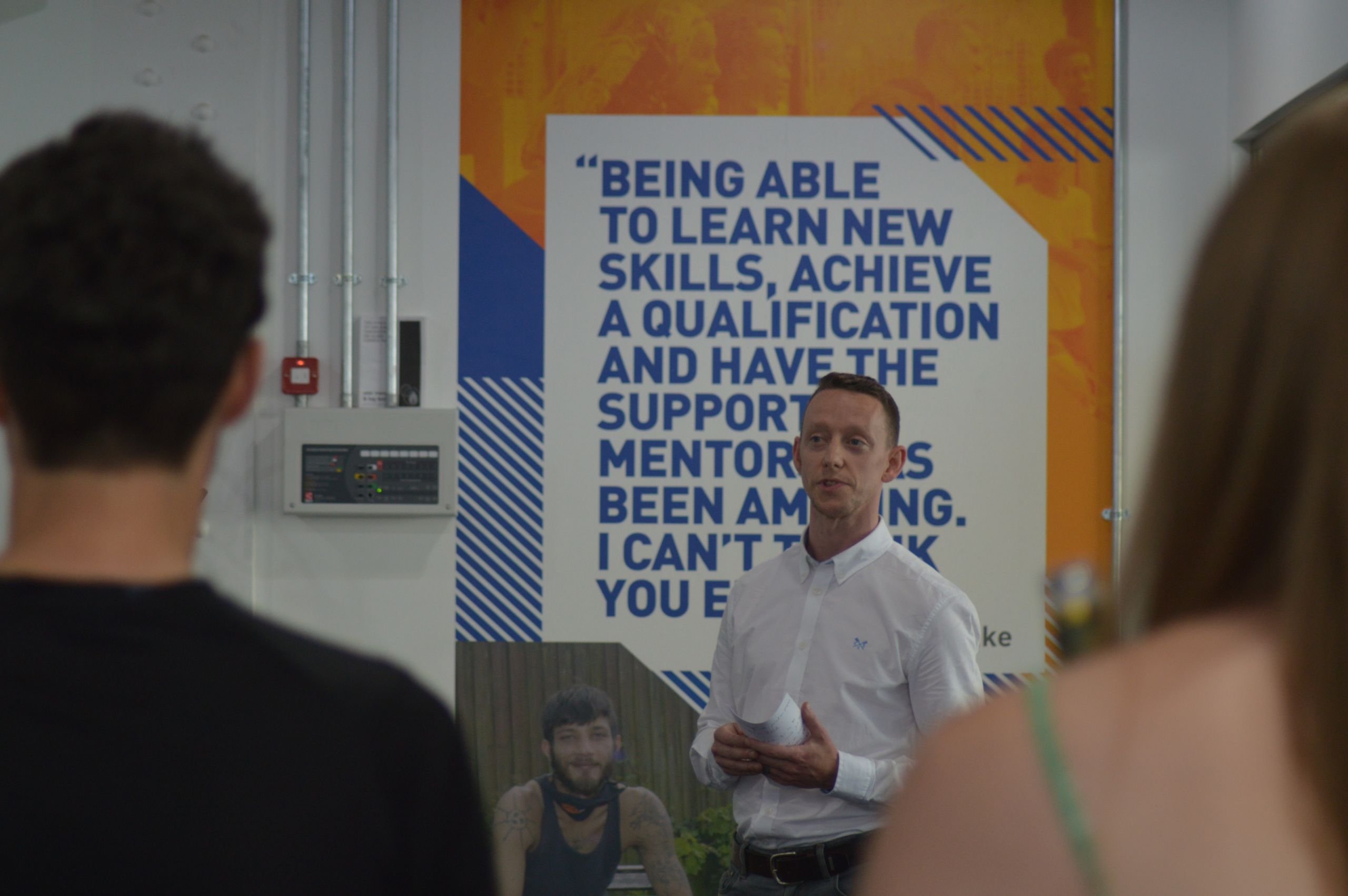The process of founding an organisation – and seeing it evolve from nothing to something – is a profoundly personal experience. Often, this strong emotional attachment becomes synonymous with an ‘all-hands-on-deck’ approach and culture. But as organisations grow, develop and mature, founders and leaders need to mature alongside it for it to be a long-term success. And this requires the courage to ‘let go’.
This is the precise reality I find myself in. Sport 4 Life UK (S4L) was founded 15 years ago, bringing together my core passions, and combining them to create something of value. And over this decade and a half, we’ve gone from 0 staff, £0 in the bank (and quite frankly 0 ideas!), to 25 full-time staff, an annual turnover of £1.3m, winning 10 prestigious regional and national awards, and – most importantly – annually supporting over 1,500 young people towards meaningful and sustained outcomes. We’ve invested £8m into the communities in which we serve, and supported 15,000 young people to achieve 8,000 tangible outcomes and towards better futures.
With this constant growth has come the need to develop in my role, evolving out of the detail, and into the strategy and vision – the classic shift from ‘doing’ to ‘leading’. What I was doing on day one is very different to what I do today, aligned to the changing requirements that the organisation has of me. This has been a journey of learning, growth, mistakes, self-betterment and change. I’ve learnt – and am still learning – what works, what doesn’t work, what change is needed and how I need to continue to evolve.
But the idea of relinquishing control can be – understandably – very difficult for many leaders (and especially founders) to accept. For many startups, it is precisely the attention to detail and hard work that brought the organisation success in the first place. And it’s this constant state of overextension that fuels an instinctive reaction to ‘protect’ work. However, holding on to too much control, being protective, and operating too deep in the detail has its perils. Trying to do everything is – ironically – a perfect recipe for failure. No-one on this planet can be good at everything, and a ball will inevitably drop at some point. It also stifles a team’s potential, contributes to burnout, and creates an inefficient and short-term focused culture. Ultimately, it hinders growth.
And now, following further growth and key milestones (we’re over the £1m audit threshold, have over 25 staff, and are expanding regionally), S4L finds itself at another crucial ‘tipping point’, and I’m making further changes to ‘let go’.
This is my plan:
1. Delegate
Many leaders profess to understand the importance of delegating, but then cling on to involvement, detail and decisions. The research is clear – delegating more responsibility for decision-making increases productivity, morale and commitment. And yes, if you want small things done right, do them yourselves, but if you want to do great things and make a big impact – you need to delegate well.
I’m going to share more of my ‘power’ and responsibility through a new ‘Scheme of Delegation’, spreading accountability and autonomy amongst our leadership team. I’m able to do this because of how strong, competent and able the leadership team has now become. It’s allowing me to effectively make this move. And I’m working hard to provide absolute clarity on roles and responsibilities within this, with clear expectations on outcomes and on what success looks like – all aligned to the big picture, to our ‘why’, and to our mission and vision. And as I let go, this delegation will come with all of the resources and support they need to be successful – including an appetite for risk and mistakes, and complete trust.
I will operate at the top and on the ‘shop floor’ (visiting sessions and delivery on the ground level), worrying less about the ‘middle bit’ by trusting my leadership team to manage this effectively.
2. Detach
For many leaders and founders, their role and work is a label for who they are, and something they identify with closely. Surreptitiously, these labels can trick us into living in accordance with how we think these identities should live. And if we become too strongly attached to these labels, they can leave us feeling exposed, because if we were to lose them – for whatever reason – we may lose a sense of who we are.
Take my role as Founder and CEO of S4L, for example. What if I was ill and unable to work? What if something happened that threatened the long-term survival of the organisation? Who would I then be? How would I feel if my very identity was wrapped up in the idea of being a founder and leader? Would my happiness and worth decrease because I would lose a sense of self?

To be clear, my role at S4L is an incredible privilege, responsibility and honour, and one I am incredibly proud of. And I’m determined to do the role to the best of my abilities in pursuit of our organisation’s mission and vision – the pursuit of changing the lives of even more young people. But being a Founder and CEO is not who I am, it’s simply a role that I have.
I recognise the importance of attaching our labels and identity to our personal values. These can’t, and won’t, change – regardless of what role I play in life or what situation I find myself in.
By doing this, I can detach myself from any identity that is tied up with my role, and move towards a more conducive state for delegating and leading.
3. Let go
Having delegated effectively to others, and removed any unhelpful emotional attachments, I will let go and step out. I will evolve my leadership to work more on the business and less in the business. I will have more of an external focus – raising the profile of the organisation, being a thought-leader for our sector and forging strategic and long-term partnerships. But internally, I will seek to serve people within the organisation, providing support and guidance, not instruction and direction. I will embrace the unavoidable leadership paradox that I need to be more essential and less involved. They are not the same (just as being ‘busy’ is not the same as being ‘productive’). And how ‘essential’ I am will depend on how well I activate those around me.
And as I let go, I know things won’t fall to pieces. Because people will step up. It’s a misconception that successful organisations operate because of their leaders. To great leaders, and great entrepreneurs, the organisation successfully operates without them.
Over the next six months, I will be charting this journey with more content – sharing successes and learning from letting go, and bringing in colleagues to discuss the impact of this new way of working. Watch this space!

